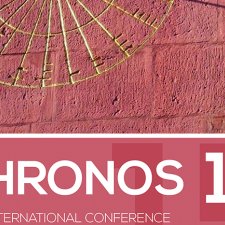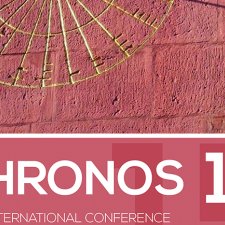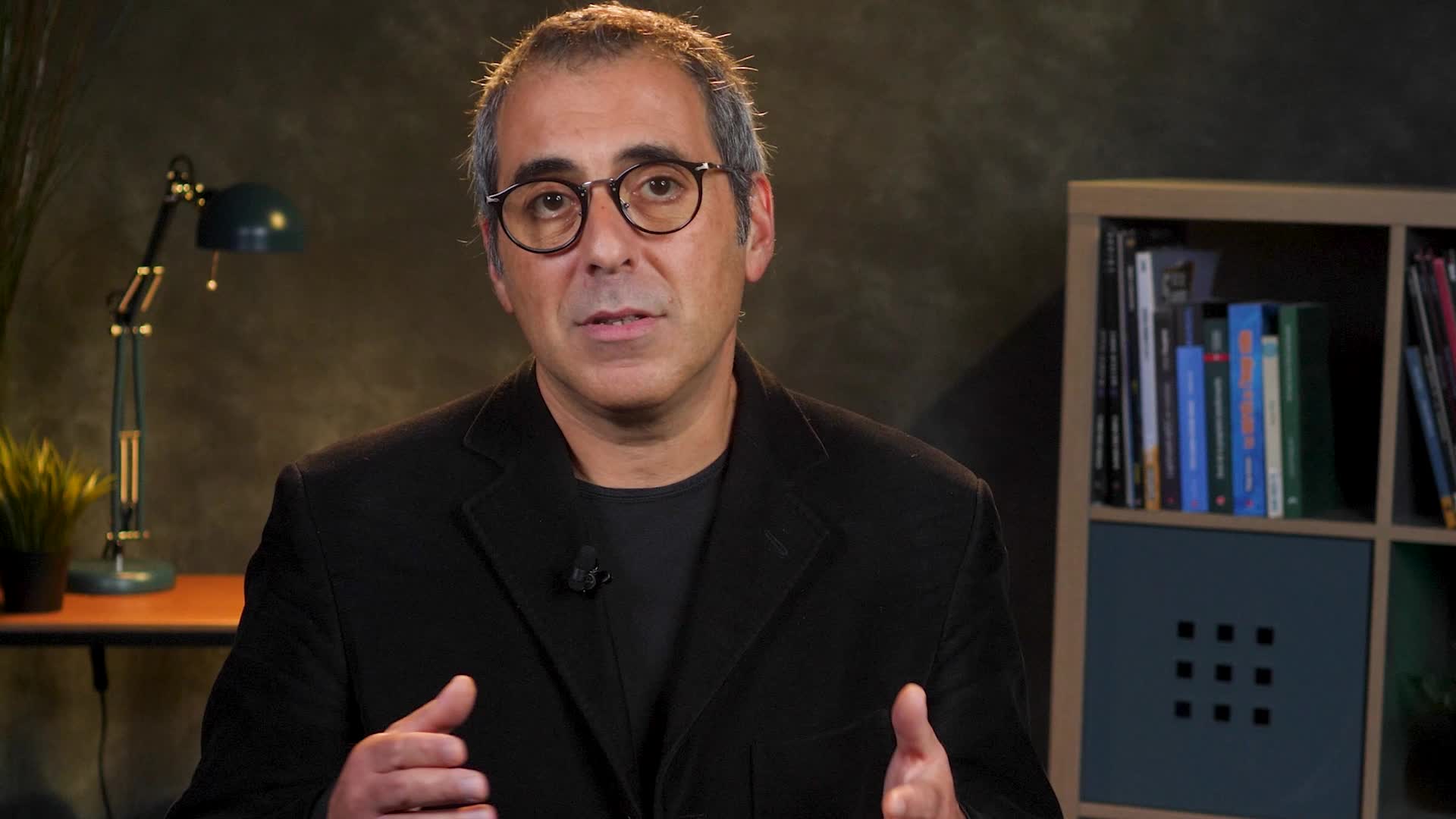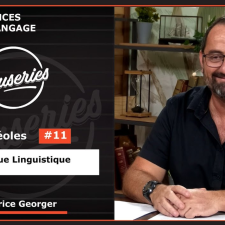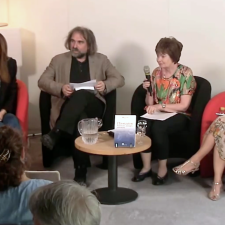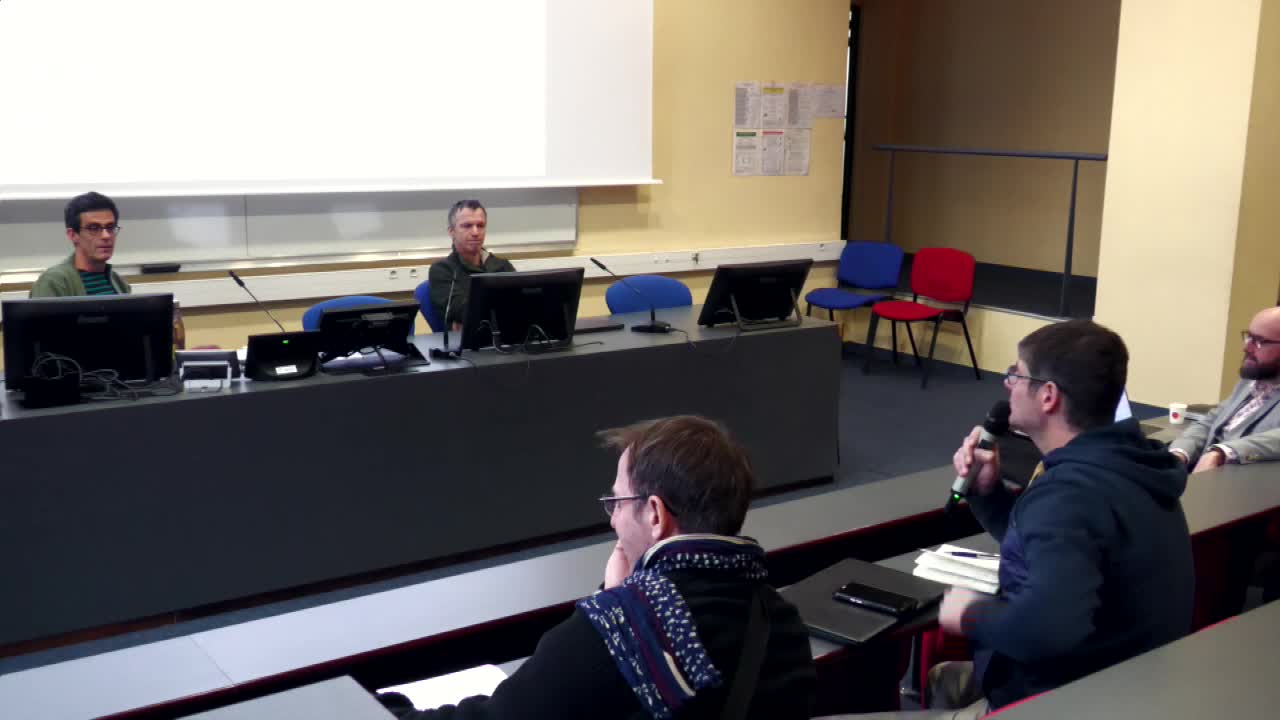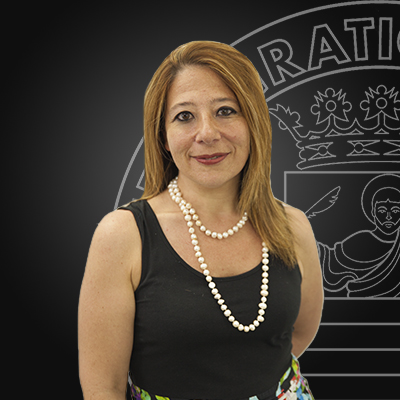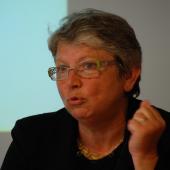Notice
Mirative extensions in the postmodal domain
- document 1 document 2 document 3
- niveau 1 niveau 2 niveau 3
Descriptif
Cette conférence plénière a été donnée dans le cadre du colloque international La postmodalité et les cycles de vie des expressions modales, organisé par le laboratoire CRISCO, à l’Université de Caen Normandie, du 2 au 3 juin 2022. Le colloque portait sur les stades avancés de l’évolution des éléments modaux : le passage du domaine modal au domaine postmodal, la démodalisation, la structure interne du champ postmodal et les possibles cycles de remodalisation.
This keynote speech was given at the international conference on Postmodality and the life cycles of modal expressions, organized by the research group CRISCO, at the University of Caen Normandy, 2-3 June 2022. The conference focused on the late stages in the evolution of modal items, namely the transition from modal to postmodal domain, demodalization, the internal structure of the postmodal category and the possible remodalization cycles.
Agnès Celle is a professor of linguistics at Université Paris Cité, France. Her research specialisations include the tense-aspect-modality interface, English French contrastive analysis, evidentiality and mirativity from a typological perspective. She is currently the principal investigator of a project on the transmission of knowledge through questions in TED talks and of a French-Estonian bilateral mobility programme (PHC Parrot) on Surprise Questions from a comparative perspective. She has recently become interested in the correlation between modality and distinct speech acts.
Mirative extensions in the postmodal domain
The aim of this paper is to offer a semantic-pragmatic account of the postmodal uses of should and would. Arguably, should and would are related to the postmodal domain in so far as both modal auxiliaries have become associated with certain complement clauses:
-
I found it a bit odd that a sensible girl should write about them in that - that romantic way. BNC
-
It was odd that she would have her own servant, Isabel mused vaguely. BNC
As proposed by Van der Auwera and Plungian (1998), complement clauses are part of the environments where postmodal meaning may derive from epistemic or deontic necessity. In the postmodal domain, the epistemic or deontic necessity meaning associated with these modals comes into conflict with a factual context (Celle 2018). I argue that this produces mirative extensions.
According to Larreya (2015), what underlies the use of both would and should in factual contexts is "a posteriori modalisation", which may turn out to be either constative or evaluative. I take evaluative modalisation to rely on the common ground, and constative modalisation to be evidence-based. I argue that this distinction is crucial to the structuring of the postmodal domain. It allows unifying and explaining various uses of would and should in complement clauses and beyond. For instance, in equative structures, would is reported to express the speaker's high level of confidence in the truth of the proposition (Ward, Birner, and Kaplan 2003):
-
A: Who's the British woman over there?
B: That would be J.K. Rowling. (Ward et al. 2003: 71)
As pointed out by Ward et al., the speaker has objective verifiable evidence for the truth of the proposition. I argue that would, in contrast to should, is used to mark discourse-new information. Would signals the speaker's awareness that the information update they propose is not self-evident. Therefore, the speaker may possibly anticipate the addressee's reluctance to accept this update (Celle 2012).
This raises theoretical questions regarding the meaning contribution of should and would in the postmodal domain. Huddleston and Pullum (2002, 187) view "emotive" should as conveying "low degree modality, i.e. with little discernible modal meaning of its own" and would in the context of (3) as a marker of tentativeness (p. 200). The complement clause position may give the impression that the meaning of the modal is blurred given that the evaluation expressed by the main predicate is foregrounded. However, I argue that the contribution of should and would respectively is not similar in (1) and (2). In (3), should is not interchangeable with would. Likewise, the use of postmodal should and would in open interrogatives points to their differences. :
(4) 'Why were you offended? Even if you think me the most immoral bastard ever to walk the face of the earth, why would you react so personally? And why would you have set out to humiliate me?' BNC
(5) 'It is unfortunate for you that you brazenly appear at all.' 'Why should you say that?' BNC
The event is profiled as predictable with would (4), as uncontrolled and fatal with should (5). This suggests that the original necessity meaning is retained, albeit at a representational level. In line with Arigne (2017), I argue that the mirative meaning is used as a "built-in foundation", which allows the speaker to achieve discursive cohesion. This accounts for the use of should and would in specific discursive constructions that presuppose the factual status of a proposition (such as certain complement clauses and open interrogatives). This intrinsic meaning difference also explains why would is admissible in equative constructions, in contrast to should, which cannot convey abductive inferencing on the basis of evidence.
References
Arigne, Viviane. 2017. ‘From Mirativity to Argumentation: A Case of Discursive Mirativity’. Review of Cognitive Linguistics 15 (2): 438–59. https://doi.org/10.1075/rcl.15.2.06ari.
Celle, Agnès. 2012. ‘Epistemic “Would”: A Marker of Modal Remoteness’. Faits de Langues, Ultériorité dans le passé, valeurs modales, conditionnel, 40: 149–56.
———. 2018. ‘Epistemic Evaluation in Factual Contexts in English’. In Epistemic Modalities and Evidentiality in Cross-Linguistic Perspective, edited by Zlatka Guentchéva, 22–51. Berlin, Boston: De Gruyter. https://doi.org/10.1515/9783110572261-002.
Huddleston, Rodney, and Geoffrey K. Pullum. 2002. The Cambridge Grammar of the English Language. 1st ed. Cambridge University Press. https://doi.org/10.1017/9781316423530.
Larreya, Paul. 2015. ‘Modalisations a priori et a posteriori : le cas de would’. Anglophonia. French Journal of English Linguistics, no. 19 (October). https://doi.org/10.4000/anglophonia.457.
Van Der Auwera, Johan, and Vladimir A. Plungian. 1998. ‘Modality’s Semantic Map’. Linguistic Typology 2 (1). https://doi.org/10.1515/lity.1998.2.1.79.
Ward, Gregory, Betty J. Birner, and Jeffrey P. Kaplan. 2003. ‘A Pragmatic Analysis of the Epistemic Would Construction in English’. In Modality in Contemporary English, edited by Roberta Facchinetti, Frank Palmer, and Manfred Krug. Berlin, Boston: De Gruyter Mouton. https://doi.org/10.1515/9783110895339.71.
Thème
Sur le même thème
-
Des langues inventées au télégraphe : technologies du langage et machines linguistiques sous la Rév…
CostaJamesAvec le télégraphe de Chappe, James Costa rappelle que les machines aussi ingénieuses soient-elles prennent tout leur sens lorsqu'elles s'inscrivent dans un contexte humain, social et politique...
-
Topics in aspectuo-temporal expression in Anindilyakwa
BednallJamesThis presentation examines temporal and aspectual expression in Anindilyakwa, a language whose inflectional verbal system displays both a complex morphological makeup, and a largely underspecified
-
Co-reference in (linguistic-)pictorial discourse
AltshulerDanielThis talk takes up the question of how one arrives at pragmatic interpretations of pictorial and mixed linguistic-pictorial discourses.
-
1 – Evolution des paradigmes culturels. 1
NobileLuca"Evolution des paradigmes culturels (1)" par Luca Nobile, Université de Bourgogne
-
Langue et culture créoles : Politique linguistique
ChadyShimeen-KhanGeorgerFabriceSciences du langage - Langue et culture créoles #11 - Politique linguistique
-
Les nouvelles voies de l'énonciation - Dans l'intimité de la recherche
Colas-BlaiseMarionDonderoMaria GiuliaBasso FossaliPierluigiVallespirMathildeSoirée "Les nouvelles voies de l'énonciation", dans le cadre d'une conversation « Dans l’intimité de la recherche», qui a eu lieu le 7 juin 2023 au Forum de la FMSH
-
-
La propagande dans le contexte politique italien
Cette conférence, donnée dans le cadre du programme PandheMic (Propagande : héritages et mutations contemporaines) , a été l'occasion d'attirer l’attention sur la transformation des stratégies de
-
André Pézard traducteur de Dante ou le choix inactuel et délibéré de l’archaïsme
Notre intervention ouvre la série des rencontres sur les traductions de l'IMEC avec un sujet complexe et contrasté. Pour l'italianisme français et pour la traductologie italo-française, le fonds d
-
Les témoignages des locuteurs du Calvados : étude linguistique et dialectale
La communication traite de l'étude linguistique et dialectologique d'un corpus de dix témoignages oraux d'habitants du Calvados, ayant vécu les bombardements du 6 juin 1944. Les témoins ont répondu
-
Lexicographie bilingue : enseignement de l’italien et traduction dans deux grammaires italiennes éc…
Les deux grammaires ici comparées, parues à Londres en 1821 (manuel de Veneroni-Zotti) et à Paris en 1865 (manuel de Vergani-Ferrari), sont représentatives de deux conceptions différentes de la langue
-
Illudere, deludere : penser la violence comme un ‘jeu’ dans la culture romaine
Dans le débat anthropologique des dernières décennies une place de plus en plus importante est occupée par l’étude des systèmes métaphoriques que chaque culture produit. En partant du principe que la



